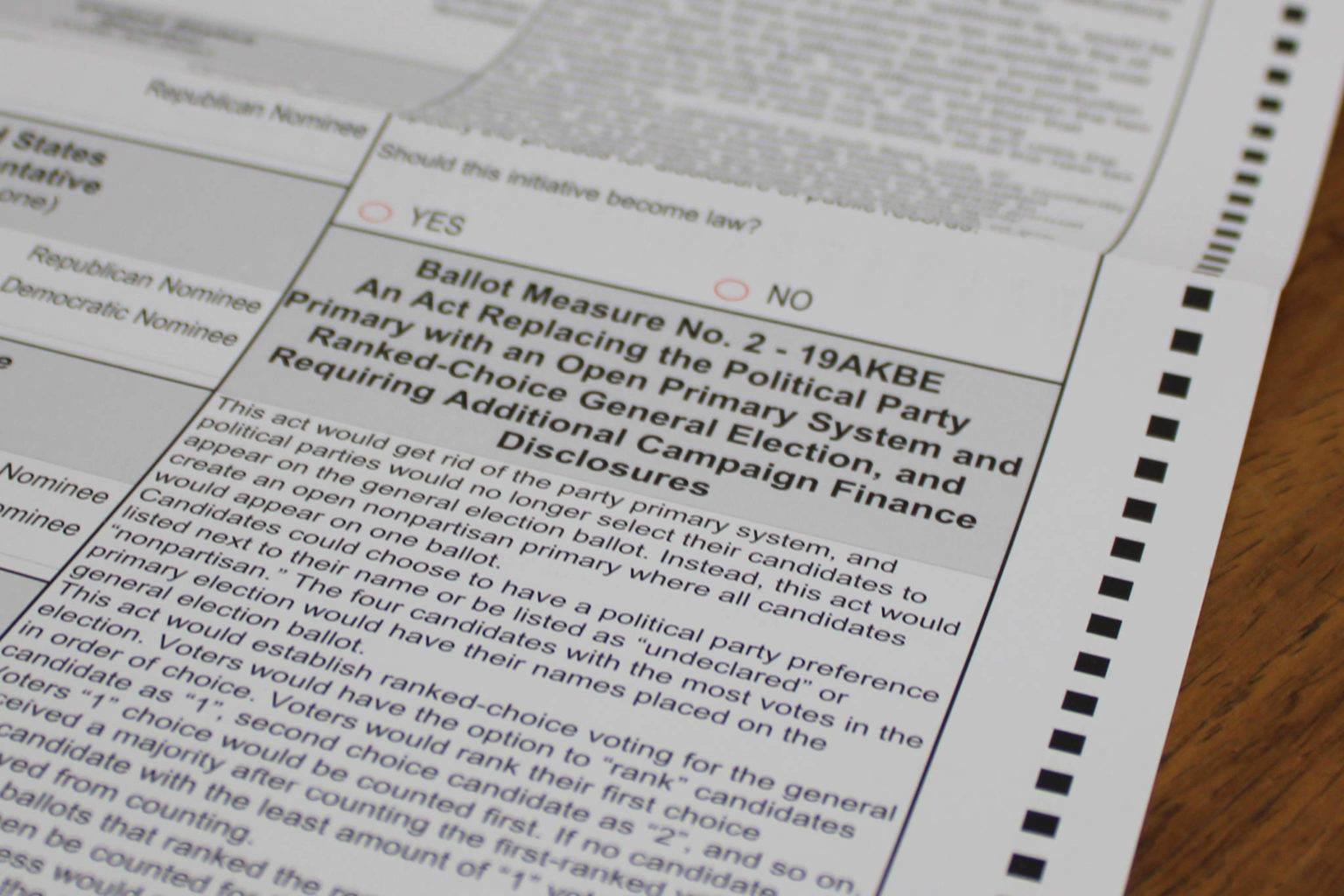Both second-place finishers in Alaska’s most recent congressional races are now devoting their political energies to repealing ranked choice voting, which they claim led to their defeat, as a ballot petition overturning the voting method began circulating after being approved by Lt. Gov. Nancy Dahlstrom.
Kelly Tshibaka, who lost her challenge to fellow Republican U.S. Sen. Lisa Murkowski in November, announced Monday she is joining former Alaska Gov. Sarah Palin, a Republican defeated by Democratic U.S. Rep. Mary Peltola, in advocating the repeal of ranked choice voting, which was used in Alaska for the first time last year. Both defeated challengers were backed by former President Donald Trump and many state party leaders, and some political analysts have agreed a case can be made they would have prevailed under the previous election process.
“Today I announced what I’m doing next: we’ve started Preserve Democracy, a non-partisan organization to increase voter turnout and fight the spread of Ranked-Choice Voting,” Tshibaka wrote in a Facebook post Monday.
“Through confusion, complication and greater dark money control, rank choice voting causes major voter suppression,” the 34-second video announcement declares, noting the method has “spread to 28 states and is growing.”
Palin made headlines following the Nov. 8 election — but before the ranked choice results were tallied 15 days later — by being the first to sign a ballot petition asking Alaskans to repeal rank choice voting supported by the newly formed political action committee Alaskans for Honest Government. The petition was submitted to the lieutenant governor’s office Nov. 23 and Dahlstrom on Friday certified it has enough qualified sponsors for circulation.
Supporters will need to collect about 30,000 total signatures, or 10% of the number of people voting in the election, to put the measure on the ballot. Alaskans for Honest Government states they hope to gather enough signatures by June so it can be certified in time for the election ballot this fall, thus repealing ranked choice voting during the 2024 election.
Proposed constitutional amendments seeking the repeal of ranked choice voting are also among the numerous election-related bills introduced at the beginning of this year’s session of the Alaska State Legislature. But members of the state Senate majority, which consists of nine Democrats and eight Republicans, have stated while they expect the various proposals to get considerable consideration during the coming months, enough support to pass a ranked choice repeal is unlikely.
Alaska voters in 2020 approved both ranked choice voting and an open primary where the top four finishers advance to the general election, regardless of their party affiliation. While numerous conservatives in Alaska were among the main critics of the changes, especially those supporting candidates such as Tshibaka and Palin, the new methods were widely praised both in and out of state by analysts and members of the general public who saw them as a moderating influence.
• Contact reporter Mark Sabbatini at mark.sabbatini@juneauempire.com

